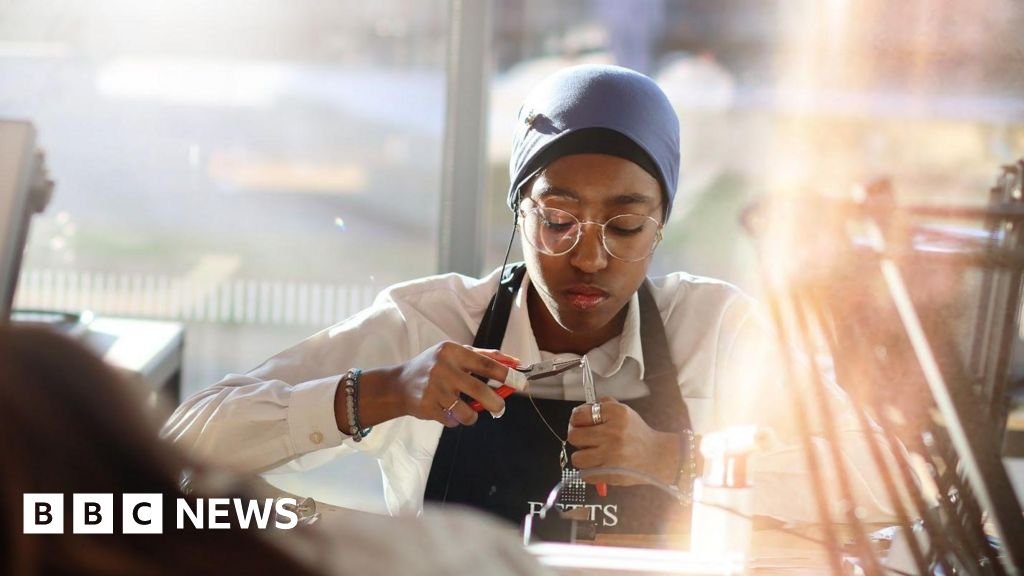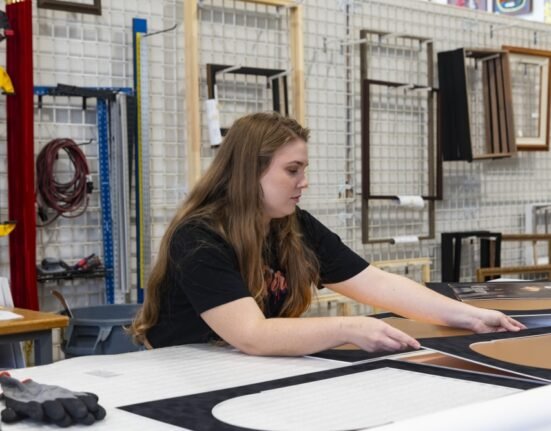BBC Midlands Today
 Aston University Engineering Academy
Aston University Engineering AcademyStudents studying what is claimed to be the UK’s first T-Level in jewellery say they hope to stop the industry becoming a “dying art”.
Aston University partnered with the Goldsmiths’ Company Charity to launch the course in September with five students.
They include 18-year-old Joana Silva who said after seeing the lack of new blood coming into the jewellery industry, she wanted to help.
“I’ve noticed, after coming to this course, after being in the Jewellery Quarter, that it is a dying art,” she said.
“When I went to [the jewellery firm] Toye, Kenning and Spencer, the only engraver they had was 86. So why wouldn’t I want to join and help?”

Those behind the course said the aim was to give graduates a direct pathway into employment.
The new Aston University Goldsmiths Institute’s principal, Daniel Locke-Wheaton, said they worked with firms in Birmingham’s Jewellery Quarter to work out where there was the most need for new talent.
“There’s a huge amount of processing, engineering and craft skills in the Jewellery Quarter but it’s disappearing and the vast majority of the workforce is ageing,” he said.
“Unless we do something about it, devastatingly, we could lose this industry to companies abroad.”
Jewellery tutor Collette Waudby said, about the famous area of Birmingham: “It’s an ageing workforce and, unless we do something about it, we could lose this industry.”
The first students will graduate in 2026 when they will be offered apprenticeships or full-time employment with feeder companies in the Jewellery Quarter.

One of them, Bespoke Quarter, employs 10 people making jewellery for shops and businesses across the country.
Co-founder Andrew Cowley said he hoped the new institute would stop fears that jewellery was a “dying trade” with a “huge skills shortage”.
“We’re not swamped with applications” for new roles, he added and “trying to find the right person with the right skills is really difficult.”
“We’re at a point where we need more young people coming through,” he said.
“We need to keep British manufacturing going and this T-level is a step in the right direction to make that happen.”
Jeweller Theo Fennell, known for elaborate designs for high-profile clients, said he was supporting the Birmingham institute.
“You can start here as a conduit through to the trade. It can become a genuine job for life, ” he said.
“If you can make something you love as a hobby into the thing you do for a job, then you’re a happy soul.”








